John Goldingay - Hosea-Micah
Here you can read online John Goldingay - Hosea-Micah full text of the book (entire story) in english for free. Download pdf and epub, get meaning, cover and reviews about this ebook. year: 2021, publisher: Baker Publishing Group, genre: Religion. Description of the work, (preface) as well as reviews are available. Best literature library LitArk.com created for fans of good reading and offers a wide selection of genres:
Romance novel
Science fiction
Adventure
Detective
Science
History
Home and family
Prose
Art
Politics
Computer
Non-fiction
Religion
Business
Children
Humor
Choose a favorite category and find really read worthwhile books. Enjoy immersion in the world of imagination, feel the emotions of the characters or learn something new for yourself, make an fascinating discovery.
- Book:Hosea-Micah
- Author:
- Publisher:Baker Publishing Group
- Genre:
- Year:2021
- Rating:3 / 5
- Favourites:Add to favourites
- Your mark:
- 60
- 1
- 2
- 3
- 4
- 5
Hosea-Micah: summary, description and annotation
We offer to read an annotation, description, summary or preface (depends on what the author of the book "Hosea-Micah" wrote himself). If you haven't found the necessary information about the book — write in the comments, we will try to find it.
Hosea-Micah — read online for free the complete book (whole text) full work
Below is the text of the book, divided by pages. System saving the place of the last page read, allows you to conveniently read the book "Hosea-Micah" online for free, without having to search again every time where you left off. Put a bookmark, and you can go to the page where you finished reading at any time.
Font size:
Interval:
Bookmark:

Mark J. Boda and J. Gordon Mcconville, E DITORS
Volumes now available
HoseaMicah , John Goldingay
2021 by John Goldingay
Published by Baker Academic
a division of Baker Publishing Group
PO Box 6287, Grand Rapids, MI 49516-6287
www .bakeracademic.com
Ebook edition created 2021
All rights reserved. No part of this publication may be reproduced, stored in a retrieval system, or transmitted in any form or by any meansfor example, electronic, photocopy, recordingwithout the prior written permission of the publisher. The only exception is brief quotations in printed reviews.
Library of Congress Cataloging-in-Publication Data is on file at the Library of Congress, Washington, DC.
ISBN 978-1-4934-2357-6
Unless otherwise indicated, all Scripture quotations are the authors translation.
Cover
Series Page
Title Page
Copyright Page
Series Preface
Authors Preface
Abbreviations
Map
Introduction to HoseaMicah
Hosea
Joel
Amos
Obadiah
Jonah
Micah
Bibliography
Subject Index
Author Index
Index of Scripture and Other Ancient Writings
Back Cover
The Baker Commentary on the Old Testament (BCOT) is innovative in its conception and in its division into canonical subsections for the purposes of its writing, editing, and publication. Among the advantages of this plan is that the commentaries on the books in any given subdivision can share in addressing issues that are distinctive to that literature. The present series of commentaries on the prophetic books, therefore, pays particular attention to features that are prominent in them, such as their rhetorical strategies and their relationship to history.
The books in question are Isaiah, Jeremiah, Lamentations, Ezekiel, Daniel, and HoseaMalachi. It will be immediately apparent that the selection has been based on the order of books in the Christian Old Testament rather than that of the Hebrew Bible. It therefore includes Lamentations, which is not normally regarded as a prophetic book, and Daniel, which is distinct in some important ways from the others. This selection accords with a methodological principle that applies to BCOT as a whole. It needs no other defense than that of the canonical tradition itself, of which the Old Testament, based broadly on the Septuagint, is not only an ancient form but also the most widely known today. In that context, Lamentations has time-honored associations with Jeremiah. Daniel too has been received by readers of the Old Testament (as distinct from the Hebrew Bible) as a member of the company of prophets. Indeed, this perception of him has made an enormous contribution to the Christian notion of prophecy, no doubt because half of the book (chaps. 712) is composed of mysterious visions that purport to disclose the future.
There is, inevitably, a certain theological parti pris in any choice of canonical format. While the commentaries location within the Christian theological and canonical traditions is to be affirmed, they are also constrained by the nature of the prophetic books themselves, and those writing for the series are committed to methods of interpretation that are widely applied to these books in biblical scholarship. These methods include close analysis of the text in the original languages (Hebrew largely, Aramaic in part of Daniel), with due attention to variants from the standard Masoretic Text where appropriate. Each volume provides the authors own translation, together with notes to explain the choices made. The commentaries also necessarily include historical investigation in order to establish as much information as possible about the original settings of the texts and thus about their audiences. Such investigation takes account not only of historical events but also of factors such as social setting and cultural milieu. This task is complicated by the fact that a number of the books have been composed over time in a variety of settings. Historical investigation therefore needs to be complemented by attention to the formation and structure of the books and is finally inseparable from theological interpretation.
A particular feature of the series is its attention to the texts rhetorical strategiesthat is, how the prophets and writers use language in order to express meaning and to persuade their audiences. The commentaries therefore explain the literary forms found in the books, the effects achieved by the authors choices in matters of expression, and the rhetorical devices employed in the service of an overall rhetorical purpose. Each volume in the series devotes space in the introduction and regularly in the running commentary to these aspects of the prophetic books.
The fundamental purpose of this series of commentaries is to explore the theological message of the books for the benefit of their intended readership. That readership consists primarily of serious students of the Bible, including those who wish to draw on good biblical scholarship for the purpose of teaching or preaching. These commentaries are therefore not intended to be like the International Critical Commentary series, for example, which is a resource primarily for scholars and researchers. Nor, however, do they aim primarily to supply application; rather, they intend to be a substantial resource for readers in their own quest to understand Scripture. That being so, each commentary will occasionally include a theological reflection at the close of a chapter. These reflections can be neither comprehensive nor definitive, and the authors have had the freedom to perform this reflective task in their own way. The intent has been to think about what the prophetic books can teach us about God, humanity, and creationwith an eye toward contemporary concerns such as sexuality, war, religious conflict, and spirituality. In this way we hope to highlight the distinctive contribution of each prophetic book and its relationship to other parts of the canon.
The idea of the canon means, first, considering the individual book in its Old Testament context and then moving out toward the New Testament. Theological interpretation of the prophetic books is bound to consider their message on the canvas of the whole of Scripture, and particularly the person and work of Christ. The relationship of the Old Testament book to Christology and the New Testament is multifaceted and cannot be encompassed by a single category, such as fulfillment. The volumes therefore aim to develop and practice a hermeneutic that shows the capacity of texts to take on new meanings in new situations. Such a dynamic can occur within the prophetic books themselves, yet for Christian readers it culminates in the New Testaments awareness that all the promises of God find their Yes in [Christ] (2 Cor. 1:20 ESV). The authors are therefore sensitive to the ways in which texts are meaningful through the full scope of the biblical story, including the coming of Christ, the gift of the Holy Spirit to the church, and the life of the church in its expectation of Christs return.
Such themes are among the most profound in Christian theology and have a long history of diverse interpretation. The present series takes no particular party line other than the shared commitment of its authors to the central tenets of historic Christianity and a high view of the Old Testament as an indispensable part of Christian Scripture, given to the church under the inspiration of the Holy Spirit. It is our prayer that the volumes offered here will make a contribution to the ongoing task of doing Christian theology for the present generation.
Font size:
Interval:
Bookmark:
Similar books «Hosea-Micah»
Look at similar books to Hosea-Micah. We have selected literature similar in name and meaning in the hope of providing readers with more options to find new, interesting, not yet read works.
Discussion, reviews of the book Hosea-Micah and just readers' own opinions. Leave your comments, write what you think about the work, its meaning or the main characters. Specify what exactly you liked and what you didn't like, and why you think so.

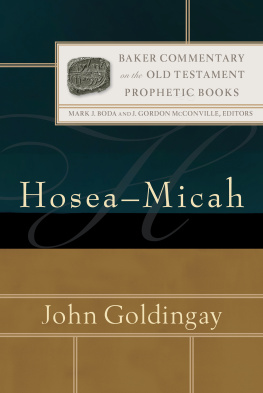
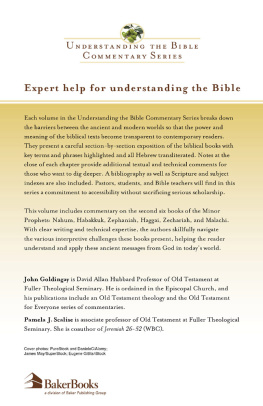
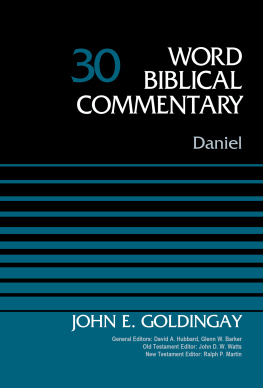

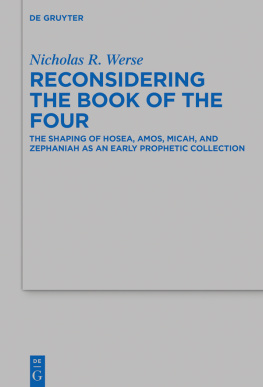
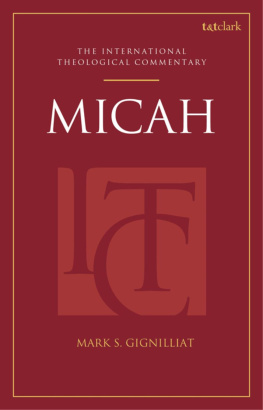
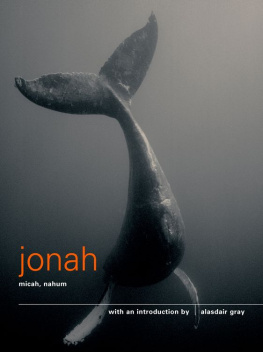
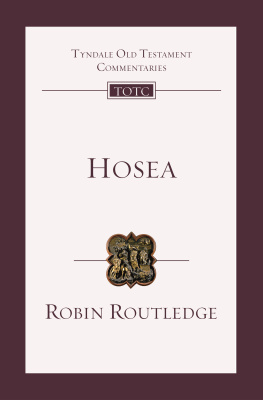
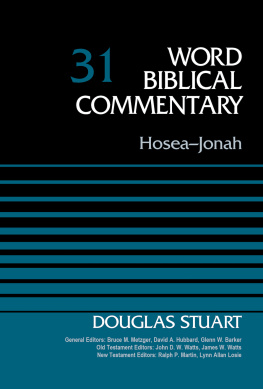
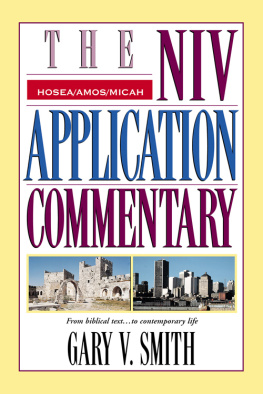
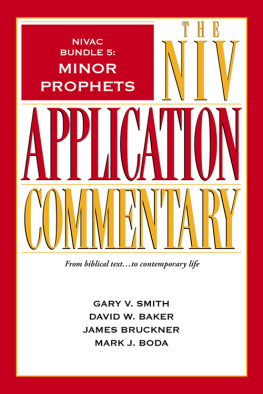
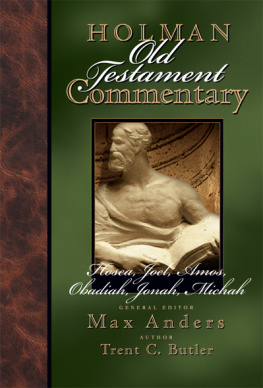
![Micah Godbolt [Micah Godbolt] - Frontend Architecture for Design Systems](/uploads/posts/book/120624/thumbs/micah-godbolt-micah-godbolt-frontend.jpg)